There is nothing quite like a dive liveaboard experience – waking up at 6:00am and already being in the middle of the ocean. You walk over a mere 10 meters to the back of the boat and slide on your dive gear to start the day. Next thing you know, you’re underwater with some of the world’s most magical creatures. Dive liveaboards are exactly what they sound like – an opportunity to scuba dive while living aboard a boat for an extended period. Trips can last anywhere from three days to an entire month, on boats that accommodate three to 30+. They occur in any number of locations around the world. However, for the uninitiated, it’s also important to note these liveaboard experiences are much more than just diving.
Consider whether you’re a traveller interested in the following:
- Incredible ocean breeze and constantly changing views
- Brilliant local and international food
- An opportunity to meet likeminded travellers who share your passion
- Staying active on your holiday
- Unplugging from your smart phone and wifi
If these sound appealing, and you happen to be a certified scuba diver or have interest in becoming one, then you should definitely consider a dive liveaboard for your next vacation.
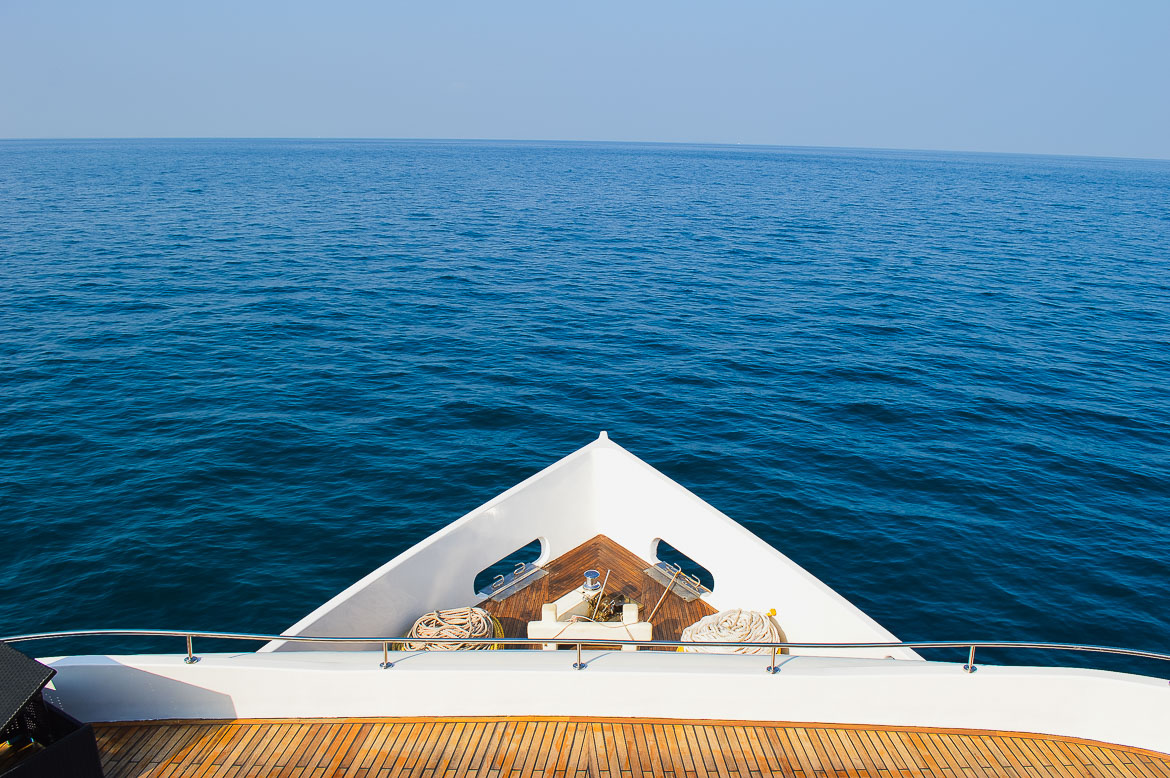
Having the opportunity to travel on multiple liveaboards across Australia, Thailand, Myanmar and most recently the Maldives, I’m always blown away at how incredible they are. I’m also surprised at how niche the concept seems to many others. With this in mind, I thought I’d share a bit about my experiences to help you decide if a dive liveaboard is the right travel experience for you. These trips tend to be fairly costly versus the backpacker approach to travelling, which I believe is justified as it includes your accommodation, a skilled activity, guides and food. So before you shell out $1,500 to $4,500 USD for a week, here are my liveaboard pros and cons:
Highlights of a Dive Liveaboard:
Better dive sites. With virtually no exceptions, the further from land you go, the better the dive sites. If day trip boats can make it to the reef, you’re set to enjoy dives with greater chances of seeing rare fish versus fellow divers. You can also expect to get out into some pretty incredible places such as migration routes of whale sharks or dolphins. During my week in the Maldives we spotted several pods of dolphins – some even swam alongside our boat for an extended period, playing in the wake. This experience would have been highly unlikely closer to major islands or busy maritime shipping routes.
Increased odds of seeing incredible sea life. When you’re out at sea for five to eight days on a dive liveaboard and have multiple dives a day, the odds are in your favour that you’ll see something memorable versus the unpredictability of striking gold on a single day dive. On a recent trip around the Mergui Archipelago off the coast of Myanmar, I met a fellow diver with a long ‘wish list’ of things to see. Low and behold, we ticked them off her list one by one: shark, octopus, turtle, sea horse – check, check, check. Admittedly we didn’t spot any whale sharks or manta rays, however the trip still felt incredibly rewarding overall thanks to the multitude of other memorable experiences we had.
Dive with the pros. The experience level can range widely from recently certified divers to actual National Geographic photographers or ex-Navy Seals – I’ve met all three types on dive trips. However, chances are that when you’re on a trip that requires such a substantial time and financial commitment, you’re going to be surrounded with a higher caliber of diver. I’m often a solo diver on these trips, pairing up on day one with a dive buddy I haven’t previously met. Knowing my buddy is a likeminded traveller with experience is incredibly reassuring in the event that we’re 100 feet below the surface and something goes wrong with our equipment. More experienced divers are also able to share interesting dive travel stories and out of this world photos over dinner – you will never bore, I assure you.
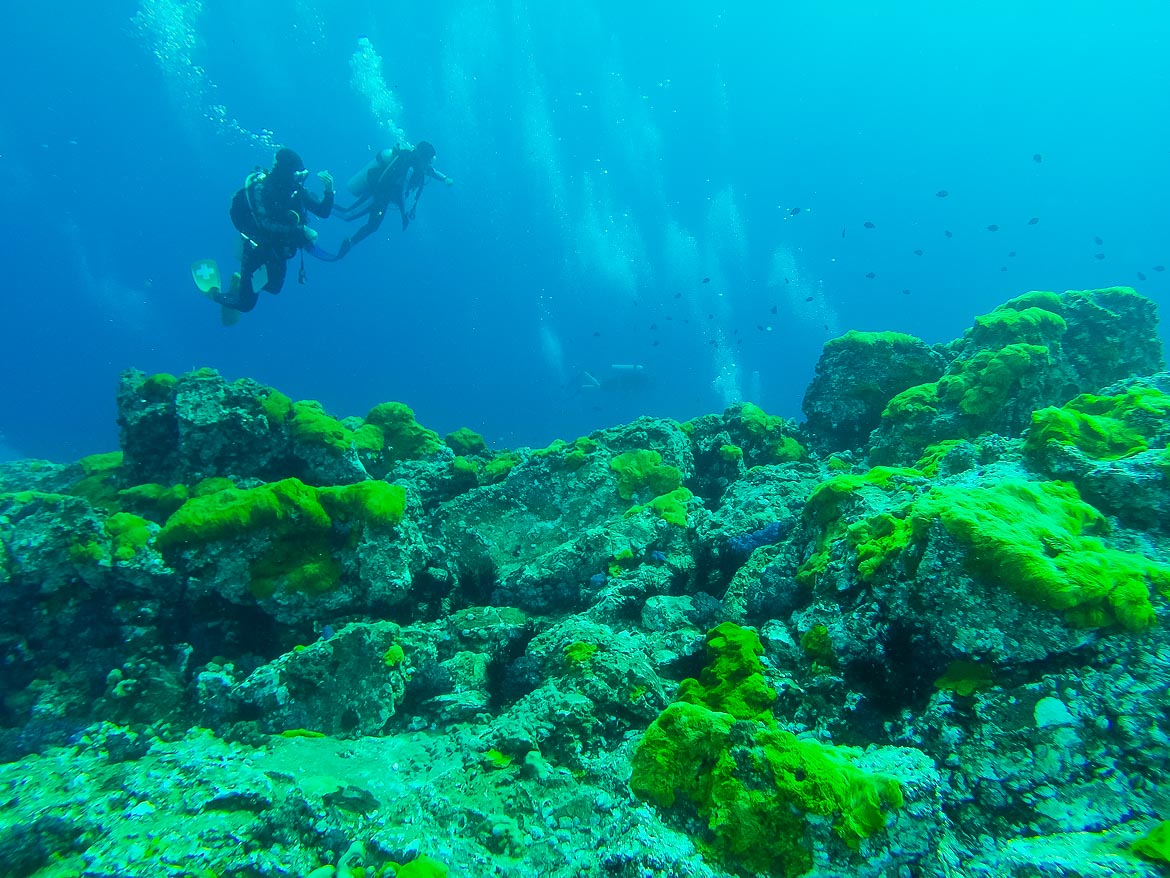
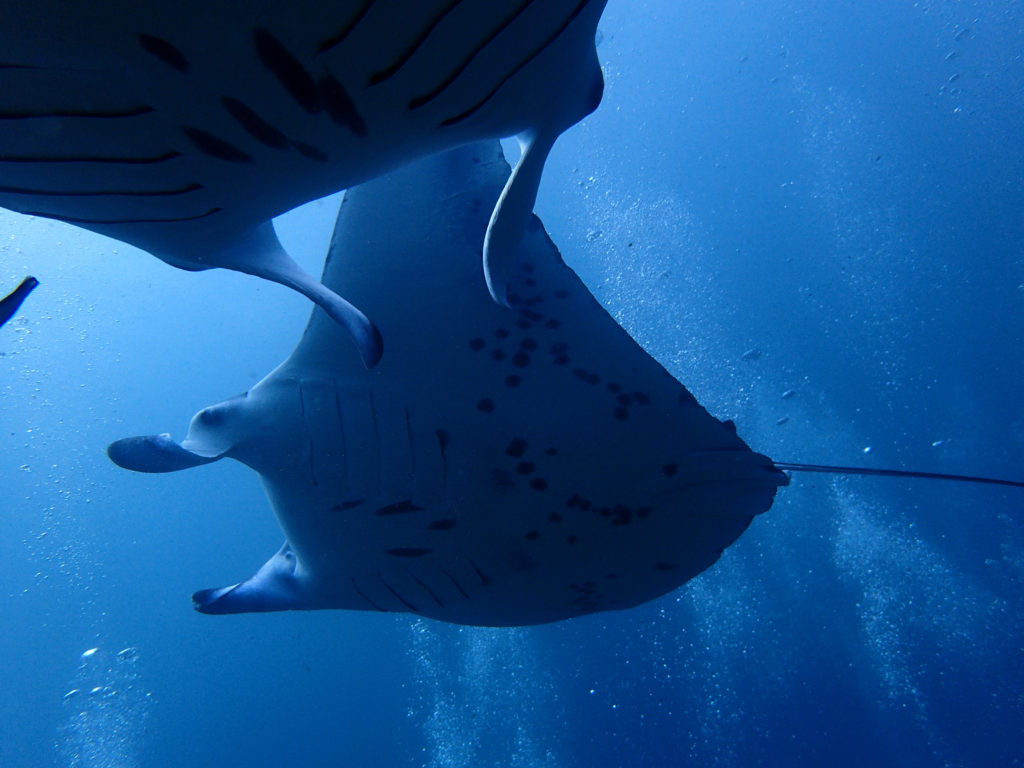
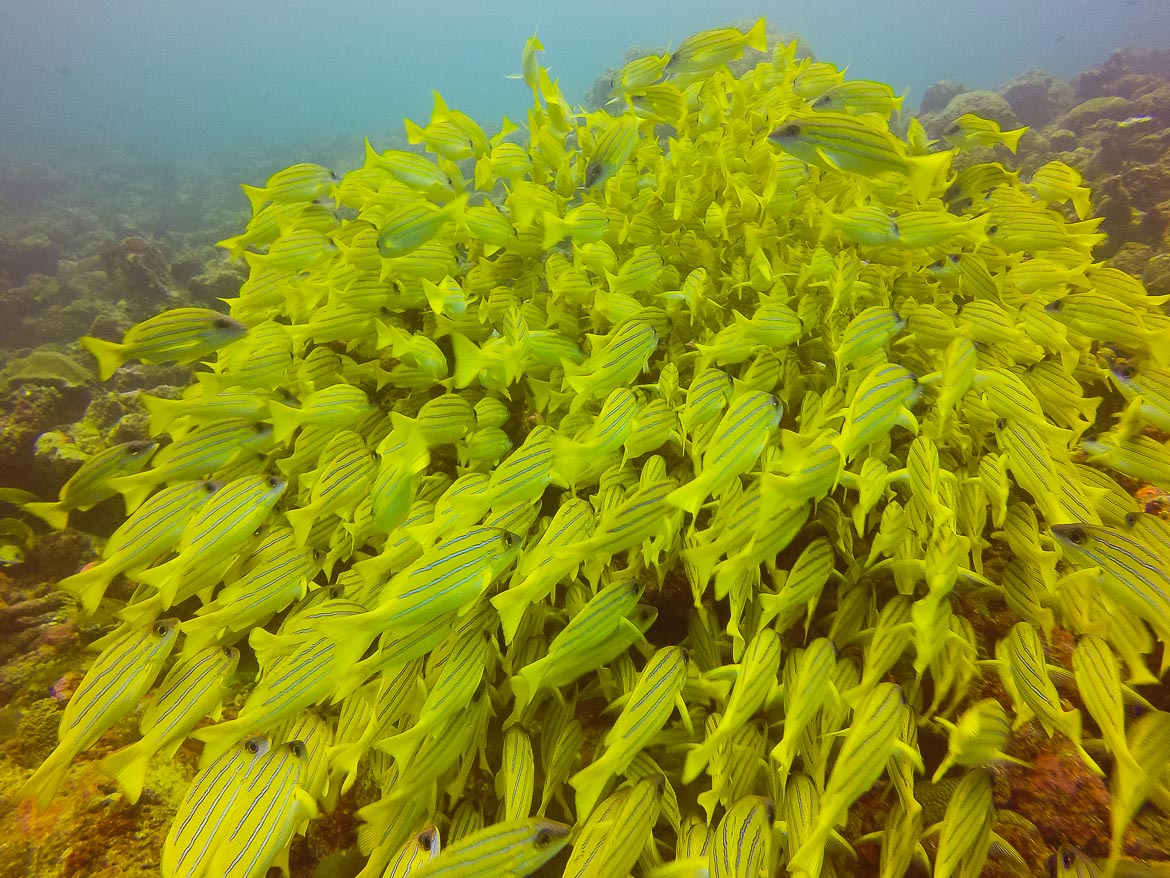
Amazing food. Second only to the marine life, food plays a central role in the experience. The basic schedule of a dive liveaboard runs something like this: 6:30am wake up, 7am dive #1, 8am breakfast, 10:30am dive #2, 12pm lunch, 1:30pm dive #3, 3pm snack, 4:30pm dive #4, 7pm dinner, 8pm drink(s), 10pm bed. “Dive, eat, sleep, repeat” is a pretty spot on motto. Healthy fresh seafood is in abundance as well as baked goods and freezers of ice cream – which I’ll admit I’m eternally grateful for. You’re likely to try a new dish from the local cook on board, which may very well become your favourite. Buffett style meal service also means there is no shame in going back for seconds or thirds. The crew are always incredibly accommodating of dietary restrictions and preferences, just speak up. Although free snacks are never ending and alcohol is usually fairly priced, in most cases you can also bring whatever you would like onboard and store in a fridge as needed – so stock up at a grocery store, 711 or Duty Free Shop as much as your heart desires!
A healthy week of exercise. If I’m totally honest, I probably eat the healthiest and drink the least while on these trips versus other types of travel. While diving, you can’t day drink – at all – and the nightly social period tends to be fairly tame because you’ve got that 6:00am wakeup call looming. Being in the water for up to four hours each day can be an incredible work out if you’re maneuvering strong currents. Moreover, it’s not uncommon to see another diver doing light yoga on the top sundeck in the morning, or invite you to join in a snorkel around the boat in the afternoon.
New views and locations with no re-packing. The boat often moves after every one or two dives, meaning you’re never in one place for very long. There will always be a new reef to visit or island to cruise by but you don’t need to touch your luggage once you’re on board. Easy! The second benefit to this ‘constant travel’ is that you receive sneak peeks at multiple islands, resorts and regions so you can plan the ultimate return trip!
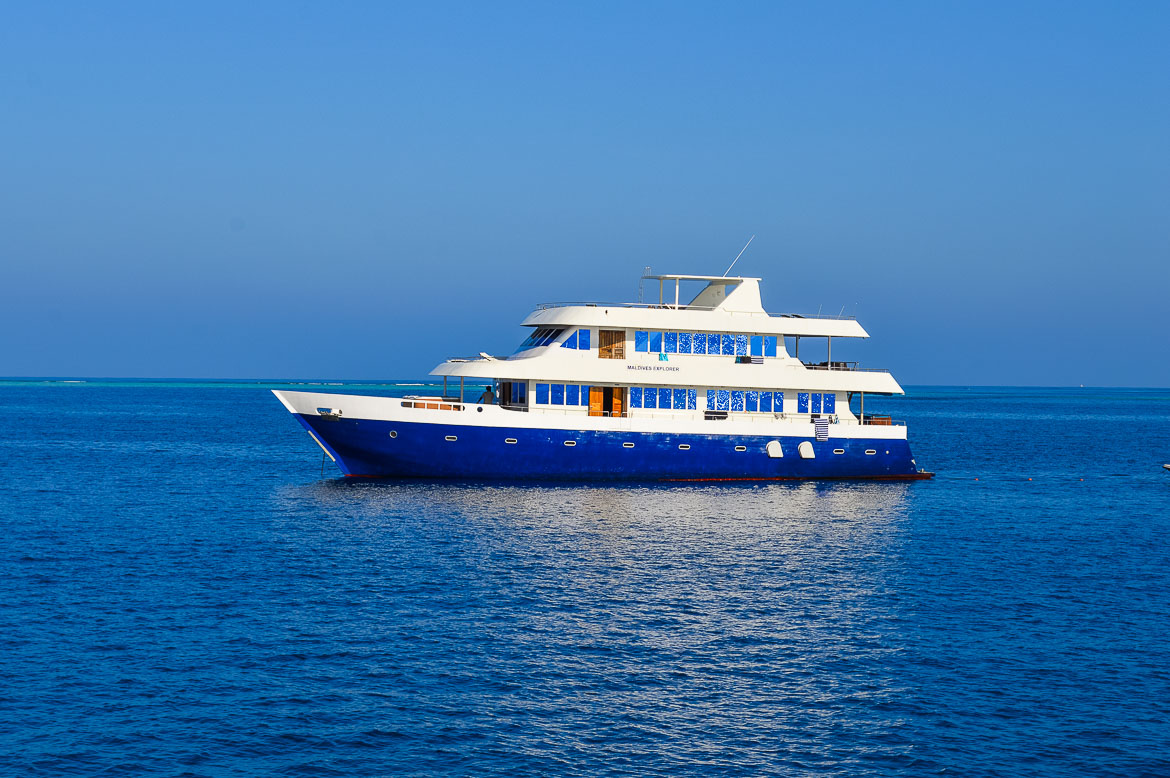

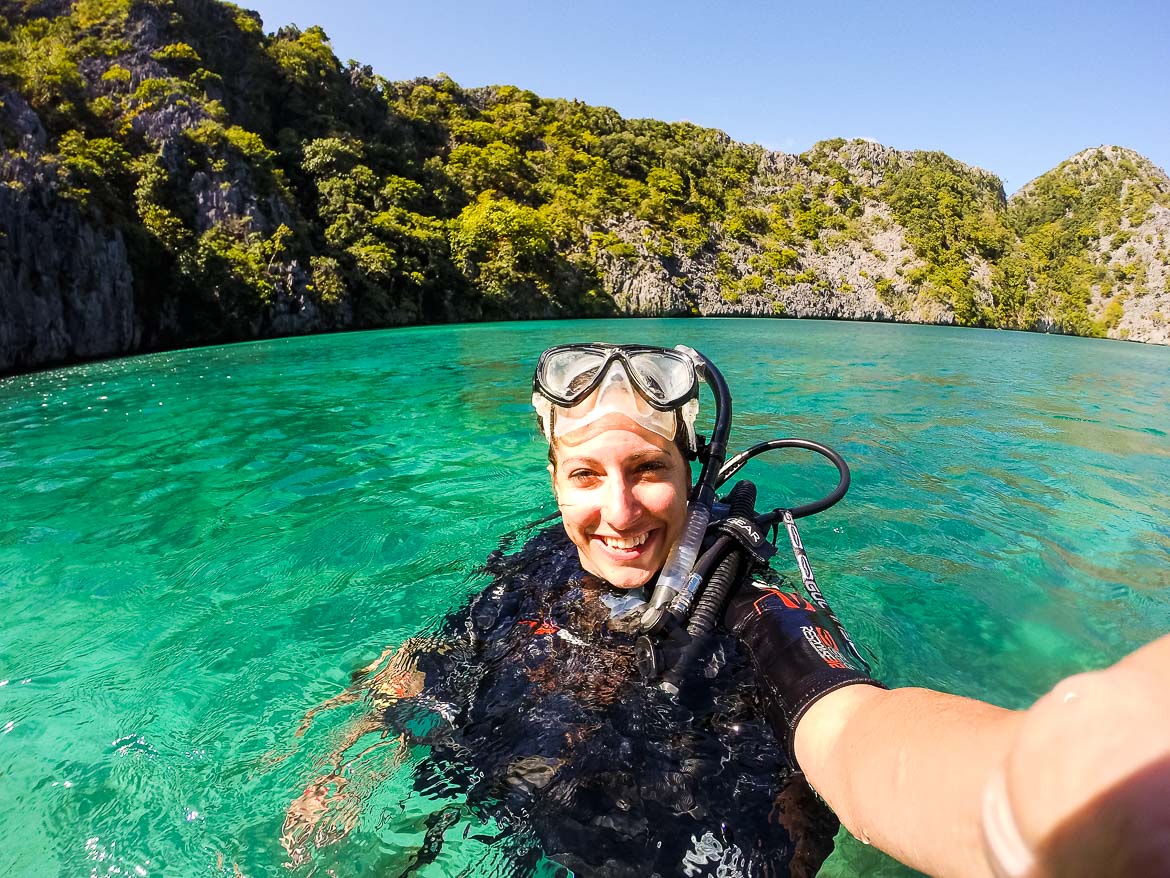
Clear schedules and planning done for you. Slipping into a nice daily dive routine and knowing that your week has been planned for you can be a blessing for some travellers. However, there is always the surprise of what you’ll see under water and dynamic weather and sea conditions to keep things interesting.
Land! The biggest misconception of a dive liveaboard is perhaps that all you do is literally scuba dive. Each trip I’ve been on has included some incredible ‘non-dive’ time. Opportunities to explore nearby beaches, hike up to spectacular viewpoints, get a massage, or enjoy sunset BBQs on private atolls. It’s nice to get out and stretch your legs for an afternoon or evening. In conjunction with the point above, most company’s websites have very detailed itineraries of what to expect, and in some cases can be customized to the group’s wishes such as bringing kayaks along or even adding a group cooking class.
Out of this world sunsets. With limited light pollution from land and the ocean an incredible reflective surface, you’ll definitely need to bring your DSLR along. You can add sunrise views to the list too, as you’ll likely be up at the crack of dawn for the first dive of the day.
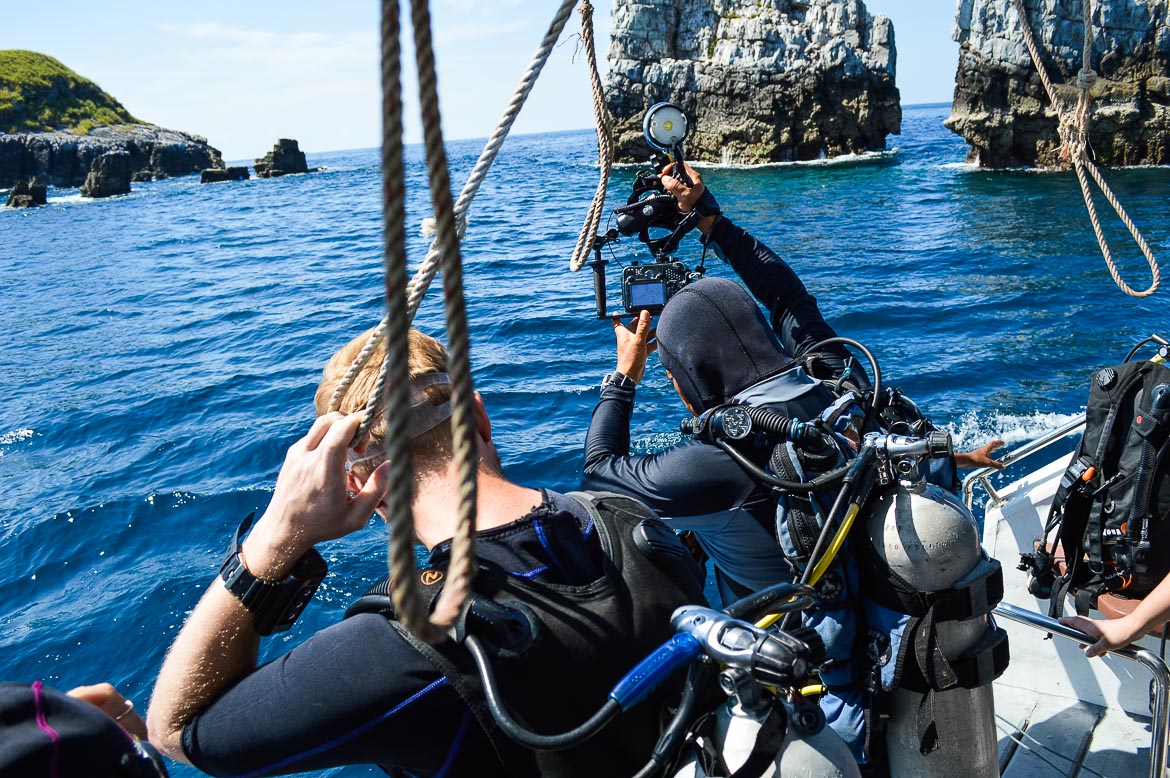
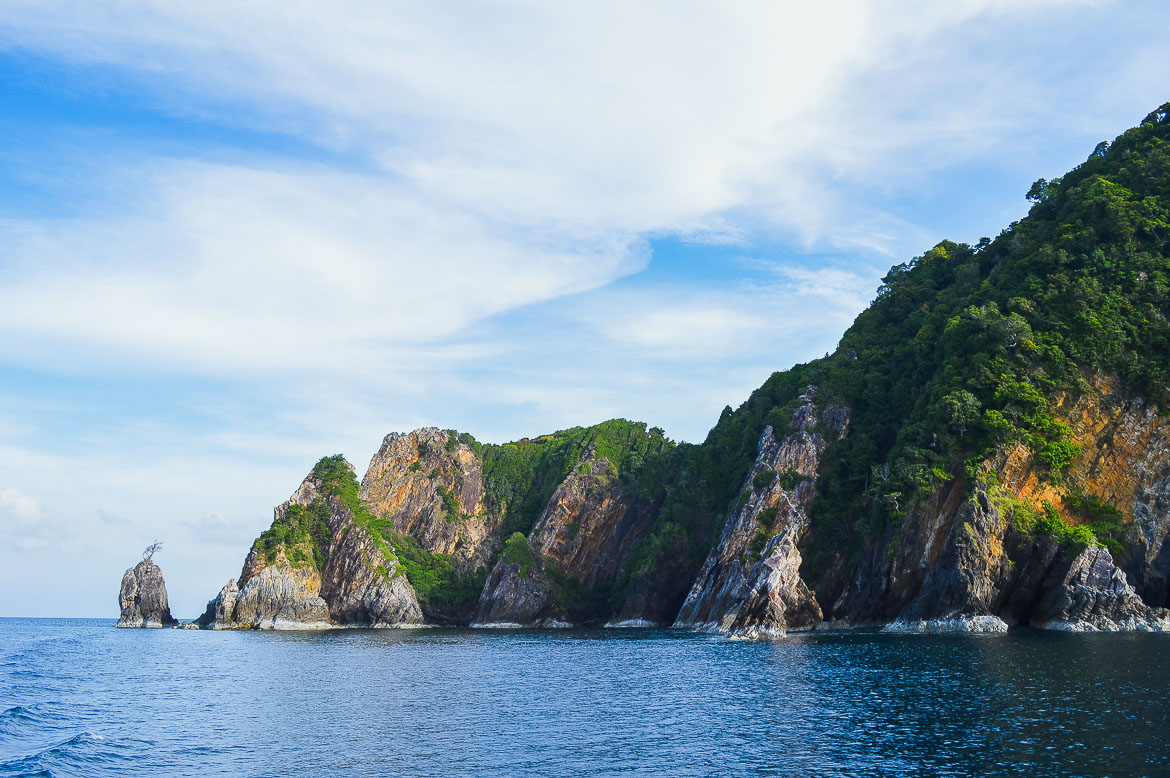
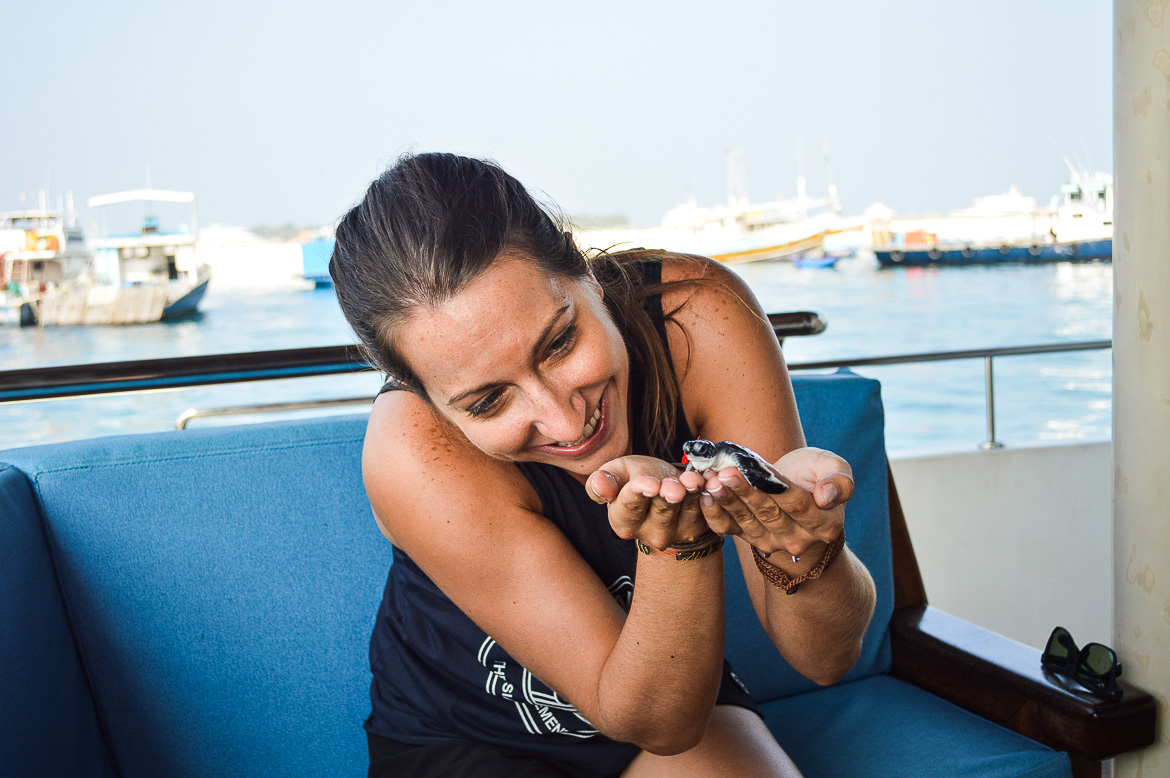
Reality Check for a Dive Liveaboard:
As much as I love them, dive liveaboards aren’t perfect. They best suit a particular type of traveller. Here’s what you need to recognize in terms of space and people.
Tiny cabins. If you’re the type of person who needs a king size bed when you travel, a traditional purpose built dive boat may be a jarring experience. With the exception of the master suite, cabins usually have very small windows, a set of single bunk beds and shared bathroom located down the hall. Particularly for solo divers, unless you pay the singles supplement for your own room – often an extra 70-90% of the price of one diver – you could be bunking with a stranger of the same gender.
A few cheats around this are strategically booking your dive during low season. At this time, fewer people on the boat means greater chance of a single room without paying extra. However, you may have poor weather or dive experiences because low season is just that for a reason. Or book on a last minute deal, when you can be fairly certain no one else is joining the trip. Many operators try to sell off vacancies for departures 1-4 weeks out at 15-40% off. That’s usually not enough time for most travellers to book an entire vacation, flights and coordinate visas, but it just might work for you.
Larger boats – getting into mega yacht territory – may have proper state rooms, but the price tag tends to increase substantially. One wonderful exception to the cabin versus cost conundrum has been Dive Away Liveaboards’ Maldives Explorer vessel. It offers sizeable two person cabins starting from only 1,150€ for a 7 night / 8 day dive liveaboard package. While traveling with them recently, I was lucky enough to end up with a private cabin with ensuite bathroom capable of comfortably sleeping three adults. The room was quite literally larger than the “master” bedroom of my Toronto condo.
Communal over private space. In most cases, dive boats include a large communal – and air conditioned! – lounge, multiple sundecks and a large open air dining area. Although it’s fairly easy to find a quiet place to relax or read by yourself, there are limits on your ability to definitively block others from your space. You’ll be spending most of your waking hours within earshot of others.
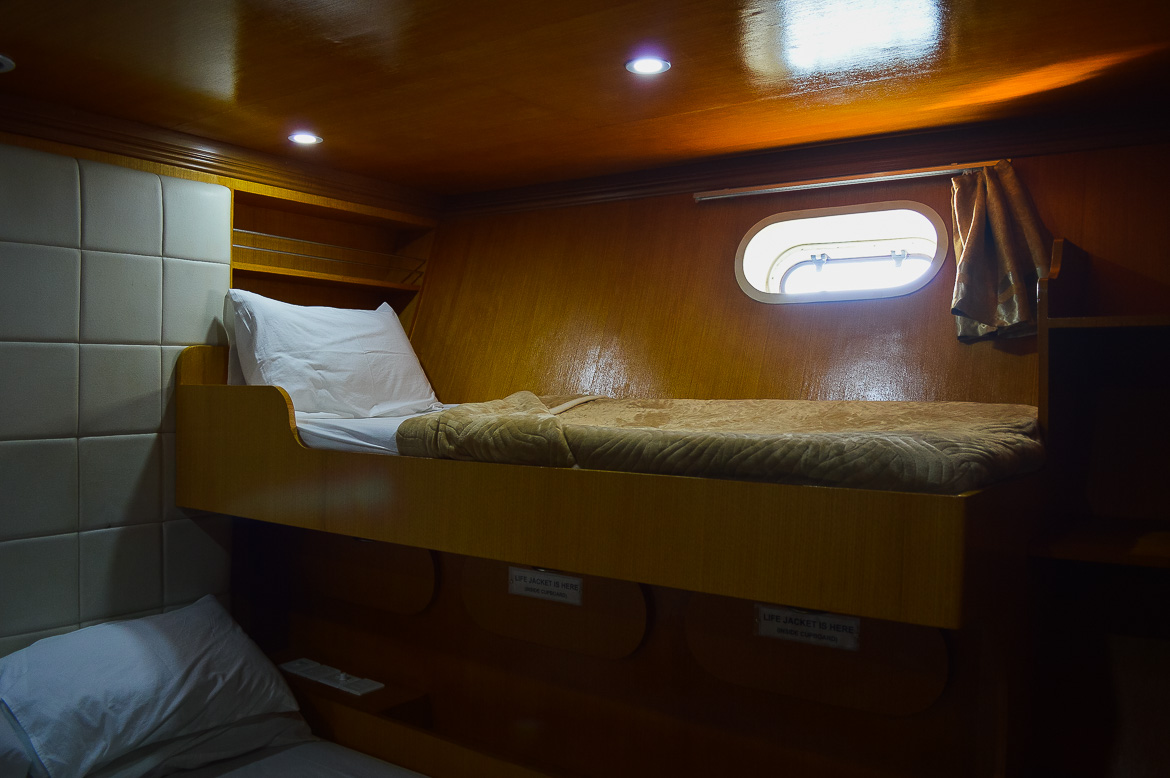
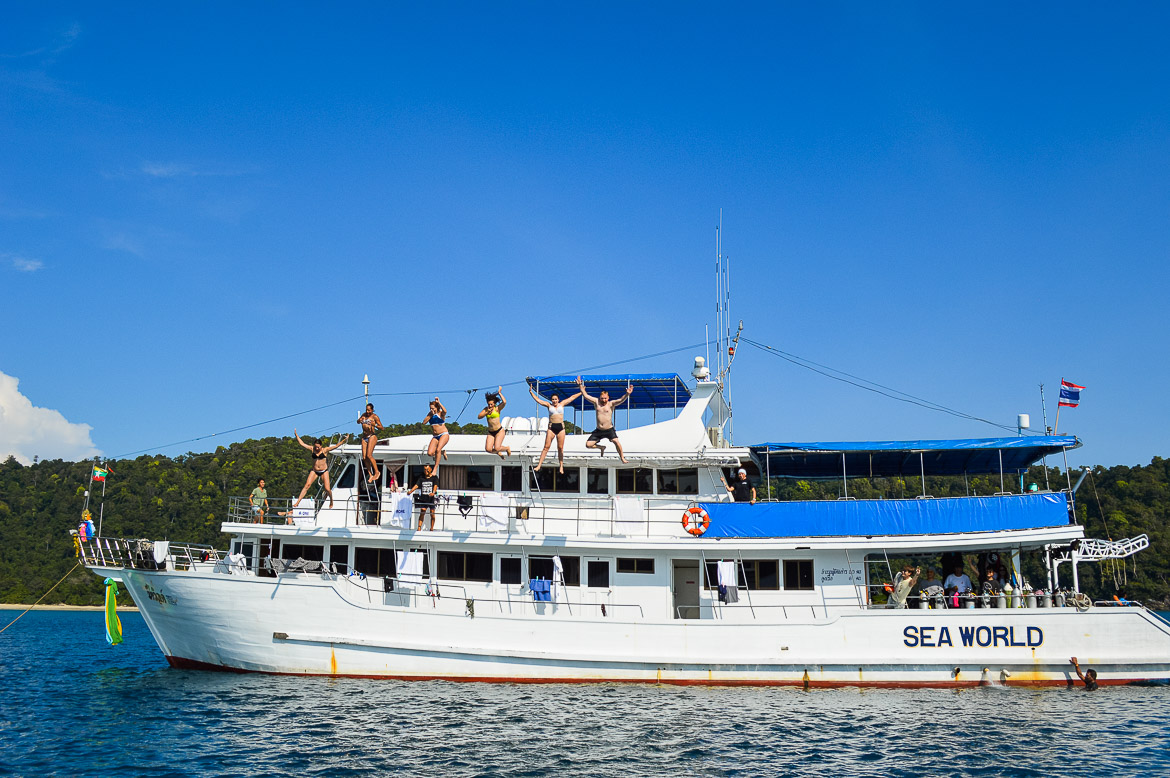
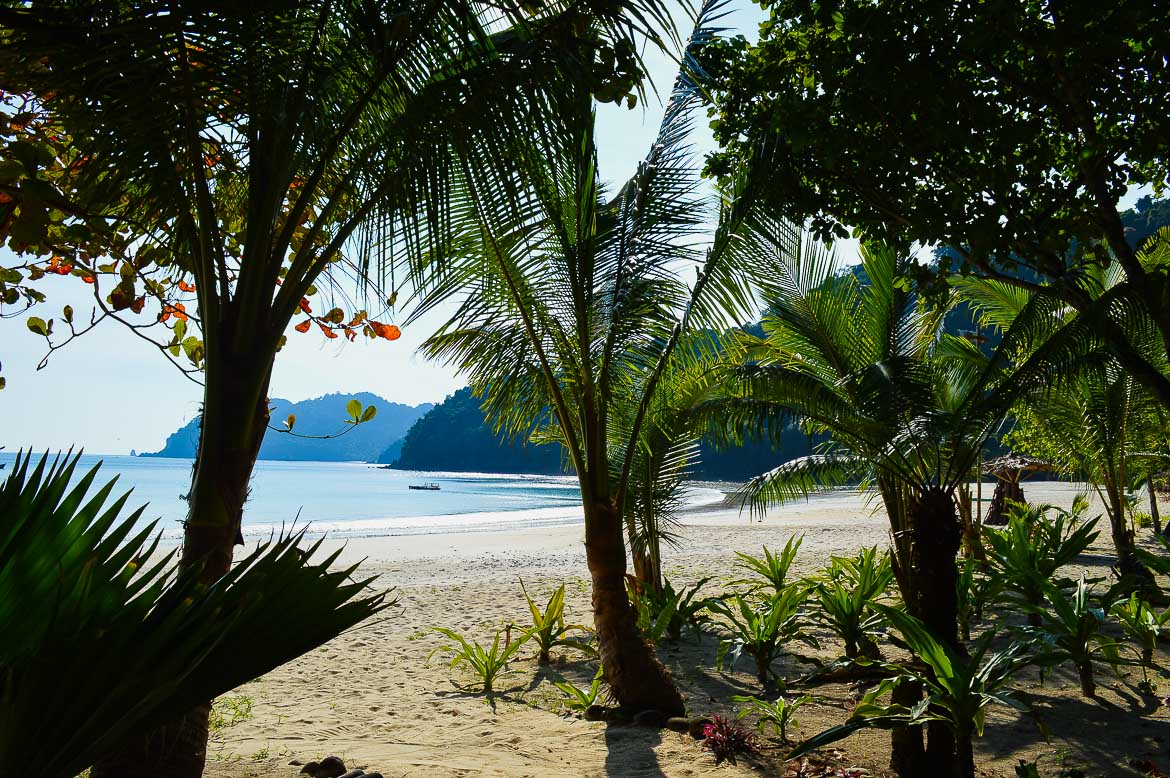
Other people have a big impact. For other types of travel, you can temporarily separate yourself from a travel companion after a spat over directions or leave a restaurant after one drink if it’s not your vibe. However, on a dive liveaboard, you are literally on a boat in the middle of the ocean with the same group of people. Such close proximity for a week or more can build incredible new friendships, or be very lonely and potentially frustrating if you don’t click well with at least some of the others on board.
Your dive guide also plays a huge role in your overall experience as you’re about to log 18+ dives together, and likely eat almost every single meal within earshot of them. Their communication, technical skills, sociability and enthusiasm for their job will inevitably impact you. In some cases, great guides have taught me a lot. In others instances they were moderately negative forces on otherwise exceptional trips.
Safety first & sensitive ears beware. Even for experienced ‘pros’, the risk of health complications while diving will always exist. I’ve opted out of a couple of dives during various trips to give my popping ears a rest. Unfortunately, seeing others sidelined for two full days due to similar concerns or unexpected colds is not uncommon. It’s costly and frustrating to be on a boat and ‘stuck’ at the surface while others come back with tales of epic octopus encounters or shark sightings. The importance of proper travel and dive insurance is paramount. If a serious injury occurs while diving – or even somehow just while sleeping in your tiny cabin – seeking proper medical treatment is more complex and potentially costly on a boat versus land.
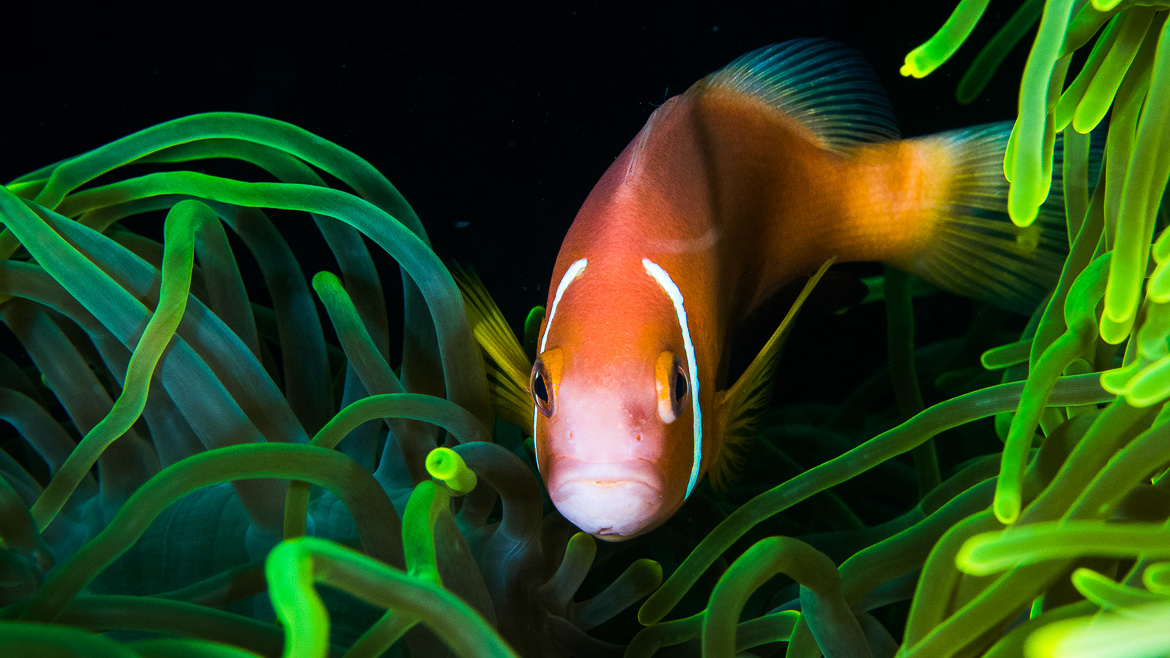
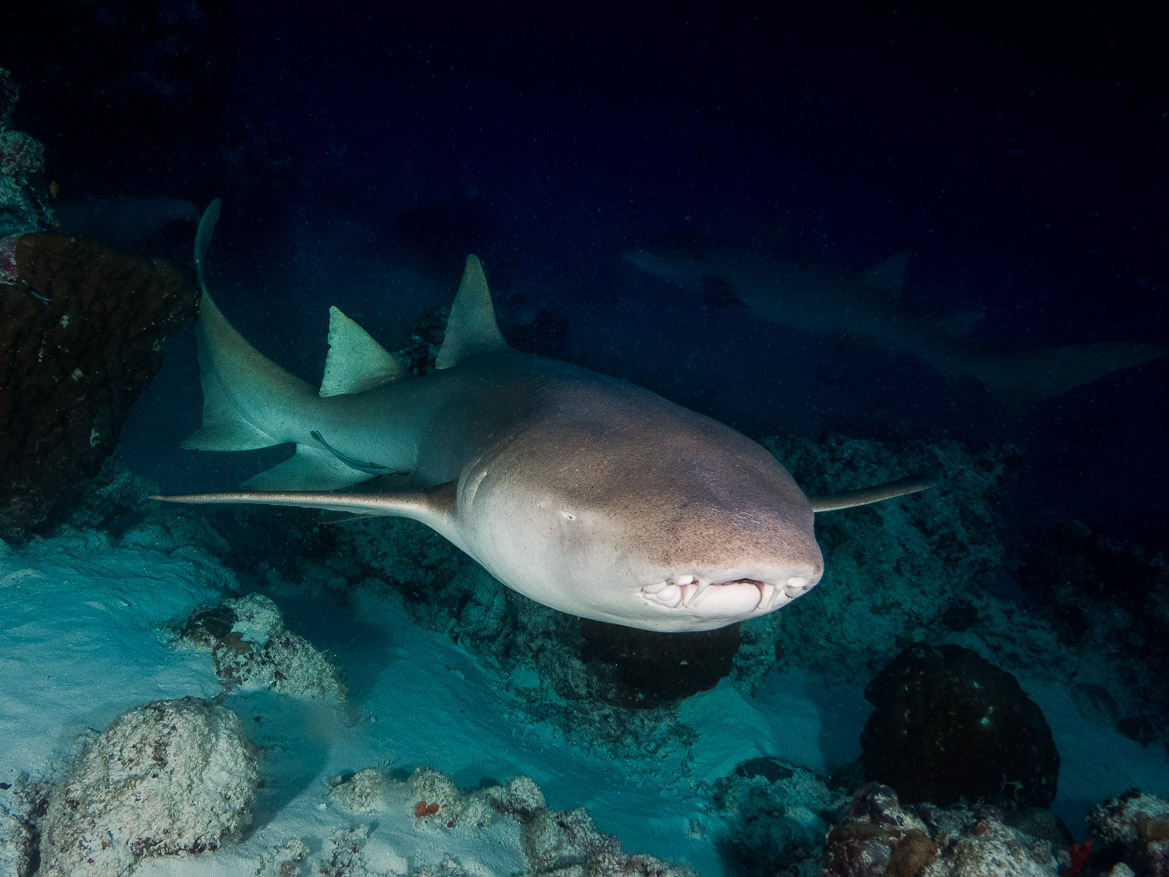
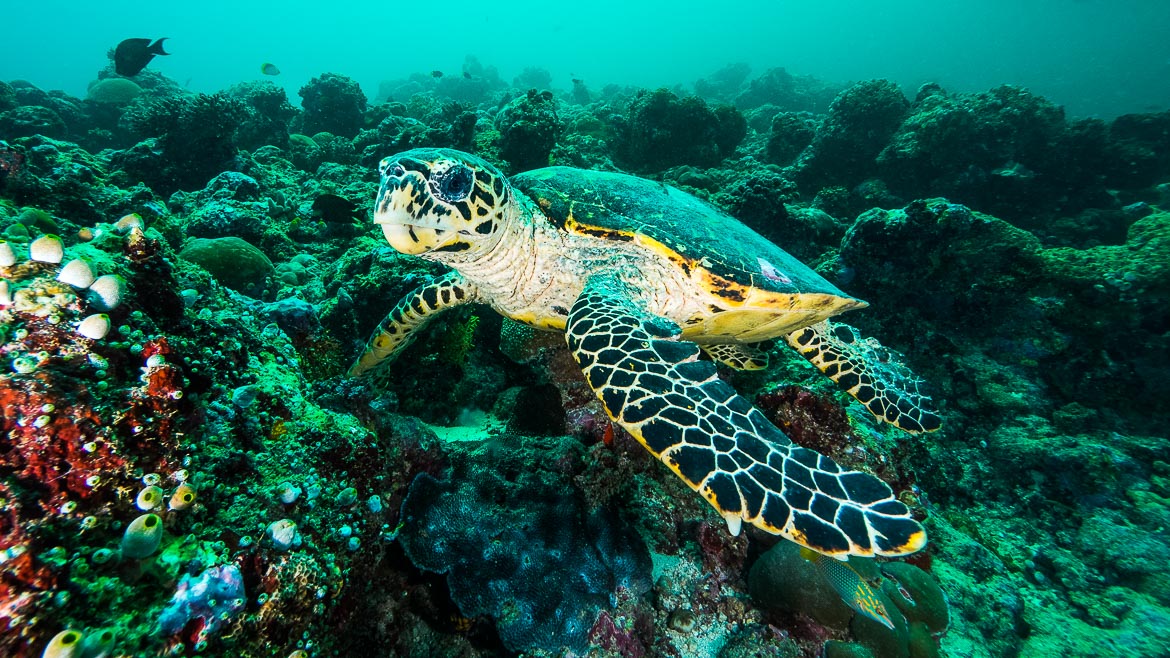
Are you the type of traveler that could cope with these sorts of stresses reasonably well? Do the highlights of a dive liveaboard sound like they outweigh any of the negatives? If so, I look forward to seeing you out on the high seas in the near future!
Dive Liveaboard Photos by Madeline Burch, Bart Roelands and Giulia Donati.
Make your next trip the best one.
Departful is a full service travel agency creating truly exceptional travel experiences that are 100% personalized to you. Wherever you’re going, whatever your interests, we help you plan the perfect trip.
Madeline Burch
Madeline was born and raised in Toronto Canada, educated in marketing, and has worked in brand management and the alcohol industry for nearly a decade. In search of great drinks, stories and photos, she has travelled to South East Asia multiple times including a recent eight month stint based in Vietnam. From luxe travel to volunteer missions, she’s interested in it all.
5 Comments
Add comment Cancel reply
This site uses Akismet to reduce spam. Learn how your comment data is processed.



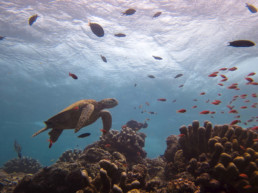
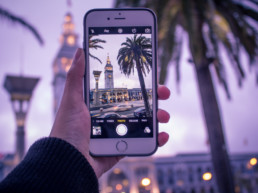
Holy awesome photos. Officially added to the bucket list.
Respect i love diving too 🙂
Thanks NA. Any great dive destinations we should check out next?
I love your well written article! I recently came across a brand new luxe liveaboard with very very nice and spacious rooms contrary to your mention of tiny cramped spaces, but i’m sure this is an exception than the norm. They sail exotic Indonesia. I’m impressed! They literally just launched: https://www.facebook.com/GaiaFleet/
Thanks Colin. Great to know there are new liveaboard options popping up. The Gaia Fleet looks impressive indeed! Happy diving!